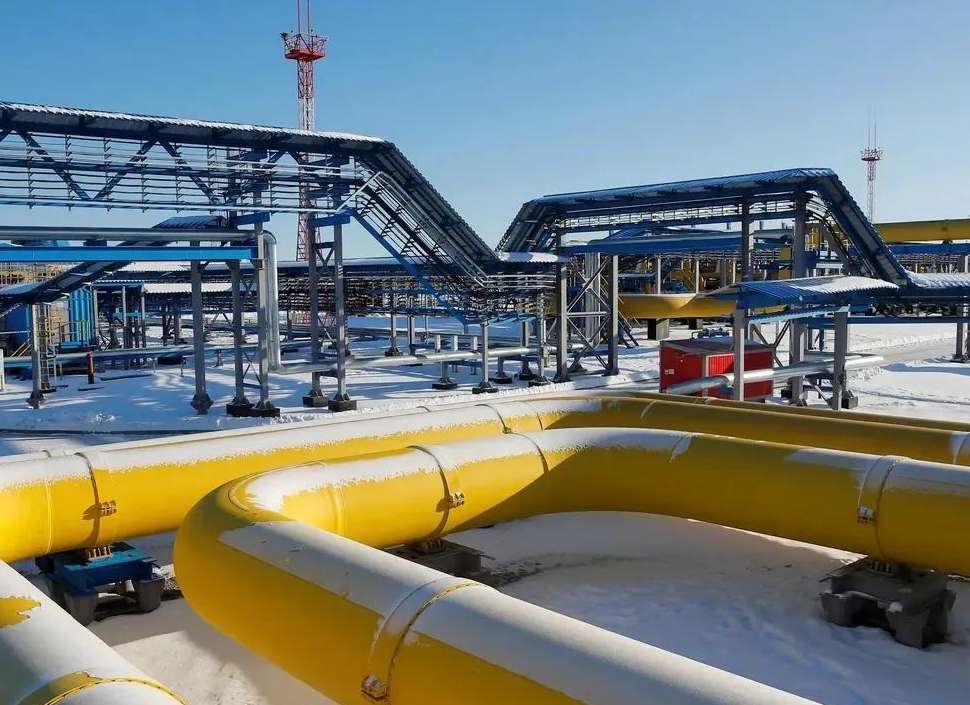Europe's Energy Crisis!
Advertisements
Since the onset of the war, Europe has found itself embroiled in an unprecedented turmoil regarding its energy situation. The skyrocketing natural gas prices combined with supply instability have emerged as significant pressure points for the European economy, presenting severe challenges for societies across the continent. Currently, natural gas prices in Europe have surged to their highest levels since February 2023 and now exceed those in Asian markets. This indicates that Europe is trapped in a self-reinforcing energy crisis, revealing not only profound shortcomings in its energy policies but also triggering a domino effect that resonates throughout the global energy market.
The phenomenon of “higher prices in the West and lower in the East” has dramatically reshaped global energy dynamics. Recent reports indicate that European natural gas prices have risen to €58 per megawatt hour, marking a peak level since February 2023 and representing a 20% increase compared to early 2024 prices. Contrastingly, Asian markets are witnessing a decline in the prices of liquefied natural gas (LNG). Historically, natural gas prices in Asia have been higher than those in Europe, but the persistent rise in European prices has led to an inversion of this price relationship, fundamentally altering the market landscape.

The underlying causes of this seismic shift are glaringly apparent. Europe's natural gas supply chain has been severely impacted by the war, with Russia having drastically curtailed its gas supply to the continent. Major suppliers upon which Europe depended have now been cut off entirely. Compounding this issue, abnormal weather patterns have resulted in sudden drops in winter temperatures, leading to a surge in heating demand. Moreover, countries like Germany have experienced a “calm and sunless” weather pattern, drastically reducing the production capacity of renewable energy sources, which in turn has intensified the need for natural gas.
Adding to the gravity of the situation, European natural gas inventories are plummeting. Latest data reveal that the gas reserves in the EU have declined to 48%, a significant drop from capacity levels recorded at the end of last year. If this trend continues, Europe could face an acute shortage of storage by spring, unable to meet the demand during peak consumption periods. All of this signals an impending worsening of Europe's energy shortfall, likely extending into the summer months of this year.
Europe now finds itself in a catch-22 situation. The relentless rise in natural gas prices has left European nations with no easy options. Faced with soaring natural gas costs, some countries have no choice but to source LNG at exorbitant prices from global markets to secure heating and the normal operation of industrial production. This has led to increasingly fierce competition between Europe and Asia in gas procurement, exacerbating the price disparity and effectively redirecting gas that was initially destined for Asian markets towards Europe. Analysts from Kepler report that in January alone, nine ships originally bound for Asia switched course to Europe—a phenomenon rarely seen in the past three years.
However, the high-cost procurement strategies employed by European businesses do not equate to a fundamental resolution of Europe's energy predicament. As demand for gas in Europe continues to escalate, there exists an imminent risk of further increases in global natural gas prices. Particularly with the recovery of demand in Asian markets, global gas supply will likely become even tighter, and the frantic “buying spree” in Europe will undoubtedly exacerbate the upward pressure on prices. This presents a substantial risk to gas-dependent nations such as Japan.
In this dire context, the EU is contemplating the imposition of a price cap on natural gas. Such a decision appears to be an effort to shield Europe from the oppressive surge in energy prices. Yet, the EU's reactive stance illustrates a failure to address the long-standing shortcomings in Europe's energy policymaking. The so-called “green revolution,” championed at any cost, has sidelined energy security, creating a systemic vulnerability in Europe's energy supply framework.
In the long run, Europe's energy crisis is not a sudden development but rather a culmination of excessive reliance on external supplies, an overemphasis on renewable energy, and a neglect of the stable supply of traditional energy sources. Moving forward, the specter of an energy crisis will continue to loom over European nations until they fully grasp the critical importance of energy security.
EU countries must strive to look beyond the idealized vision of green energy and focus on balancing the security of energy supply with sustainability. The rise in gas prices not only highlights the supply and demand imbalances plaguing the global energy market but also serves as a warning that Europe must avoid extreme measures in energy transition. If Europe continues to wave the “green flag” while disregarding the responsible utilization and stockpiling of traditional energy sources, it will inevitably remain vulnerable to severe fluctuations in energy pricing.
The turbulence within the global natural gas market is also impacting other regions, particularly Asian countries, which are reeling under the weight of rising gas prices. Nations like Japan and South Korea, heavily reliant on energy imports, will also be confronted with immense pressure from soaring gas costs in the future. This scenario underscores the interdependence of the global energy supply chain; the repercussions of Europe's energy crisis are certain to extend beyond its own borders, affecting the energy markets of Asia. In the coming years, the surge in global natural gas prices will constitute a significant uncertainty for the global economy.